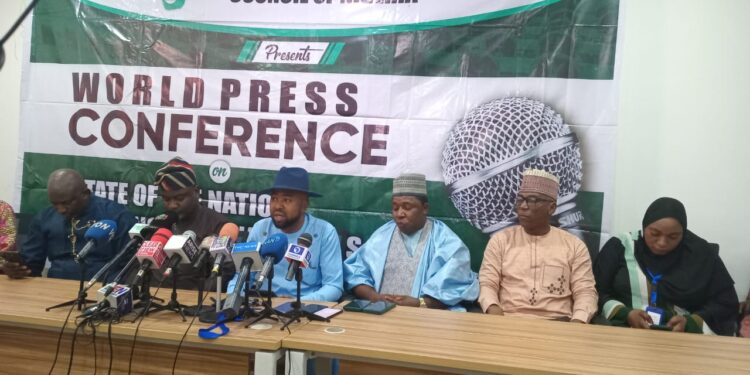The National Civil Society Council of Nigeria (NCSCN) says the Nigerian Customs Service (NCS) is not to blame for the stampede that occurred during the sale of subsidised rice in Lagos.
The NCSCN made its position known in a communique it issued on Friday, at the end of its 1st Quarter of 2024 deliberations, to discuss the state of the nation in Abuja.
The NCSCN, which described as unfortunate the incident which on Feb. 23, when the President Bola Tinubu-led government, through the NCS, tried to offer vital humanitarian intervention, occasioned by the current economic hardship.
”It is saddening that this good intended gesture of government witnessed unexpected casualties,” the council stated in the communique signed by Blessing Akinlosotu, its Executive Director.
The council said the emergency meeting, which was held in line with its convention, practices, and obligations, was to deliberate on the current state of the Nation, critical developments and sundry issues on the front burner in national discourse across the Federation.
The council, therefore, observed that the unstable and high exchange rate of the naira and its attendant consequences, were to be blamed for the incident as the NCS was only carrying out the mandate it was given.
The council further listed other factors as the bane of the current challenges the country was facing.
”The naira depreciation that has culminated into high cost of living, particularly the food inflation that is soaring higher as the day breaks.
”The resultant closure of factories and reduction in services has yielded only unemployment and increase in criminality.
”It was also observed that the high cost of transportation is affecting productivity.
”The council observed with displeasure the drop in electricity supply which has affected both domestic and industrial activities.
”The council also observed the resurgence of communal crisis and clashes, insurgencies, and kidnappings,” it said.
According to the communique, the NCS made the right call when it decided that for accountability and transparency, payment for the subsidised rice should be made through Remita.
”However, due to poor network, the payment was slow culminating into waste of time, then leading to the decision for cash on ground purchase.
”Furthermore, it was also revealed that when the Comptroller General realised that the Cash Payment method was still slow and time was fast running out, he ordered for free distributions, which yielded positive result.
”However, at some point after he had left, the crowd became impatient and unruly as they observed that the products were running out, then many pushed their way through the security barricades into the containers.
”This led to a stampede and suffocation of some persons due to intense heat and inadequate air,” it stated
According to the council, though emergency ambulances were ready and available to pick and rush victims to hospitals as part of NCS’ emergency preparedness approach, but the long distance and traffic situation did not help matters, as some lives were regrettably lost.
”We quite agree that there could have been better arrangements, however, the development is pardonable considering the good motives, intentions, actions and decisions of the NCS, hence we recommend the Service to conduct thorough investigations to address lapses and adequately compensate families of the victims,” it added.
The NCSCN, however, said of greater concern to the council was the inactivity of the Ministry of Humanitarian Affairs and Poverty Alleviation.











